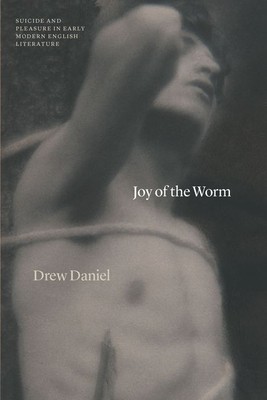
- We will send in 10–14 business days.
- Author: Drew Daniel
- Publisher: University of Chicago Press
- ISBN-10: 0226816494
- ISBN-13: 9780226816494
- Format: 15.2 x 22.9 x 1.8 cm, hardcover
- Language: English
- SAVE -10% with code: EXTRA
Reviews
Description
Consulting an extensive archive of early modern literature, Joy of the Worm asserts that voluntary death in literature is not always a matter of tragedy. In this study, Drew Daniel identifies a surprisingly common aesthetic attitude that he calls "joy of the worm," after Cleopatra's embrace of the deadly asp in Shakespeare's play--a pattern where voluntary death is imagined as an occasion for humor, mirth, ecstatic pleasure, even joy and celebration. Daniel draws both a historical and a conceptual distinction between "self-killing" and "suicide." Standard intellectual histories of suicide in the early modern period have understandably emphasized attitudes of abhorrence, scorn, and severity toward voluntary death. Daniel reads an archive of literary scenes and passages, dating from 1534 to 1713, that complicate this picture. In their own distinct responses to the surrounding attitude of censure, writers including Shakespeare, Donne, Milton, and Addison imagine death not as sin or sickness, but instead as a heroic gift, sexual release, elemental return, amorous fusion, or political self-rescue. "Joy of the worm" emerges here as an aesthetic mode that shades into schadenfreude, sadistic cruelty, and deliberate "trolling," but can also underwrite powerful feelings of belonging, devotion, and love.EXTRA 10 % discount with code: EXTRA
The promotion ends in 14d.23:25:23
The discount code is valid when purchasing from 10 €. Discounts do not stack.
- Author: Drew Daniel
- Publisher: University of Chicago Press
- ISBN-10: 0226816494
- ISBN-13: 9780226816494
- Format: 15.2 x 22.9 x 1.8 cm, hardcover
- Language: English English


Reviews